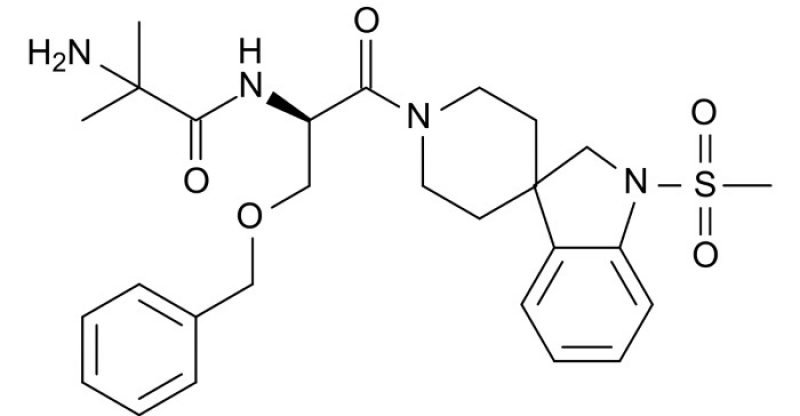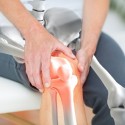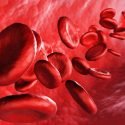9 Science-Backed Benefits of Ibutamoren (MK-677)
Ibutamoren has recently become popular among frequenters of online discussion forums.
The source of excitement for many is Ibutamoren’s ability to support anabolic muscle building properties.
Ibutamoren can be purchased over the counter and has proven beneficial to those looking to raise the levels of growth hormone present in their bodies.
What is Ibutamoren?
Ibutamoren is also known by the names MK-677, and Ibutamoren Mesylate.
This substance promotes growth hormone secretion and causes an increase in growth factor one, an insulin-like substance (1).
The means by which Ibutamoren facilitates increased growth hormone secretion is by mimicking the action of a hormone called ghrelin, as it binds to GHSR receptors in the brain.
Once bound to the receptor, the pituitary gland is signaled to begin the release of growth hormone (2).
GHSR is located in the areas of the brain that control a variety of functions including appetite, mood, memory, and cognition.
It is unclear just how Ibutamoren affects some of these functions, as to date it has only been proven clinically to affect appetite by increasing it (3).
A quality of Ibutamoren that has proven highly beneficial is the ability to increase levels of growth hormone in the body without a corresponding increase in other hormones, such as cortisol.
Cortisol is responsible for many harmful changes in the body, such as immune system suppression, decreased healing of wounds, and both learning and memory impairments.
It is generally of great benefit to avoid having elevated levels of cortisol.
Health Benefits of Ibutamoren
Supplementation with Ibutamoren has proven to have many positive health benefits to users.
Promotes Muscle Growth
Ibutamoren taken orally once daily has anabolic benefits that promote an increase in lean body mass.
This results in greater muscle mass for individuals who supplement with Ibutamoren, and also gives benefits to users that are often not available with competing growth hormone stimulators.
Multiple studies have demonstrated both the muscle-building and fat-reducing qualities of the growth hormone that is activated by Ibutamoren.
In one of these studies, conducted at the University of Rochester in New York, a study of healthy 60-year-olds given growth hormone injections for three months resulted in an overall increase in lean body mass, and a significant increase in the strength of thigh muscles.
A similar study, this one conducted at the Division of Endocrinology in Seoul, Korea, observed the effect of growth hormone treatments when paired with dietary restrictions in two male and 22 female subjects ranging in age from 22 to 46 years old.
The 12-week study resulted in a greater loss of total and visceral fat for subjects given growth hormone treatments than those given placebo.
The growth hormone group also enjoyed increases in lean body mass and an improved nitrogen balance.
The study concluded that for obese subjects given a low-calorie diet, growth hormone treatments result in the accelerated fat loss, produce anabolic effects, and improve growth hormone secretion.
The findings suggest that paired with a low-calorie diet, growth hormone treatments have therapeutic effects for treating obesity (4, 5).
Increases Bone Density
Growth hormone treatments have been shown to stimulate both bone turnover in the short-term and increased bone density in the long-term.
The increase in bone turnover can sometimes result in a temporary decrease in bone density before an increase begins.
It generally takes periods of more than a year to experience significant increases in bone density as a result of growth hormone treatments (6, 7).
A research center in Sweden observed the effects of the oral growth hormone MK-677 on markers of bone metabolism for obese male subjects with no serious documented health issues.
Twenty-four men in total ranging in ages from 19 to 49 took part in the study.
After eight weeks, it was concluded that the obese male subjects that were given MK-677 experienced an increase in markers for both bone resorption and formation of bone.
Researchers determined that future long-term studies would be warranted to determine if long-term MK-677 supplementation plays a role in increasing bone mass (8).
The bone benefits of Ibutamoren have not been limited to obese individuals, as studies have also been done on the elderly and on menopausal women that have proven beneficial for bone turnover, as well as bone density (9, 10).
Anti-Aging Properties
It has been established that growth hormone secretion begins a gradual decline at the midpoint of puberty and continues this decrease throughout an individual’s lifespan (11).
Research on the elderly shows that daily supplementation with Ibutamoren increased both growth hormone levels and levels of IGF-1.
These levels reached an increase compared to levels present in much younger, healthy adults.
IGF-1 has been highly regarded for its effect on longevity in human beings (12, 13).
Regular Ibutamoren intake has also been shown to improve the profiles for growth hormone in obese individuals.
Treats Deficiency in Growth Hormone
A study done by the Institute of Maternal and Child Research at the University of Chile in Santiago, Chile, sought to measure the effects of MK-677 supplementation in children suffering from growth hormone deficiency.
In the study, 18 children who had not yet reached puberty were selected based on their diagnosis of growth hormone deficiency.
The average age of the child was 10, and 15 male and three female children took part in the study.
The conclusion was that growth hormone, as well as IGF-1 and IGFBP-3, can be increased in growth hormone-deficient children by administering MK-677.
This effect can be attained without negatively affecting levels of thyroxine, insulin, cortisol, prolactin, or triiodothyronine (14).
A similar study performed at thCharlottesvilleof Medicine, at the University of Virginia in Charlottesville used as test subjects nine adult males who had been determined to be growth hormone-deficient since childhood.
The study adhered to a double-blind rising dose design, where four subjects were given either a placebo or 10 mg of MK-677 in an alternating fashion, and five other subjects were administered 10 and then 50 mg of Mk-677 in a sequential fashion with rising doses (15).
The observed outcome was that MK-677 dosage increased IGF-1 and growth hormone in growth hormone-deficient men.
Subjects showed no significant rises in cortisol levels but did experience a rise in both insulin and glucose levels.
Beneficial in Preventing Muscle Wasting
Researchers at the Merck Research Laboratories in Rahway, New Jersey, used eight healthy volunteers aged 24-39 years to determine the effect of Ibutamoren on protein catabolism induced by dietary measures.
Subjects were restricted to 18 calories per 2 pounds of their weight per day for two 14-day periods.
During the last seven days of a given period, test subjects were either given a 25 mg dose of Ibutamoren or a placebo.
Subjects were given two- to three-week breaks between periods.
Ibutamoren proved capable of preventing and reversing diet-induced protein loss that could end in muscle wasting.
This result suggests that Ibutamoren may be useful as a treatment for patients suffering from the catabolic process due to disease (16).
Functional decline in joint performance is commonplace for elderly individuals who have suffered hip fractures.
An Israeli study involving 123 elderly patients who suffered hip fractures intended to address the potential benefits of functional recovery for hip fracture patients believed to be possible through Ibutamoren supplementation.
The method was a randomized double-blind study in which 62 subjects would be given a daily dose of 25 mg of Ibutamoren, and the remaining subjects would be administered a placebo.
Patients were then assessed for functional performance and IGF-1 measurements in the blood.
Subjects given Ibutamoren showed advantages in mean stair climbing and increased gait speed over subjects that had been given the placebo.
The Ibutamoren group also suffered fewer falls during the study and displayed elevated IGF-1 levels when compared to the placebo group.
The study was ended after 24 weeks.
Positive Effect on Sleep
Though unclear how, or to what extent, it has long been known that growth hormone plays a role in the regulation of sleep patterns.
The Center for the Study of Biological Rhythms in Brussels, Belgium devised a study intended to answer lingering questions regarding MK-677’s effect on sleep patterns in human subjects.
Eight younger adults aged 18-30, along with six older adults with ages ranging from 65-71, were selected for the double-blind, placebo-controlled study.
In the younger patients, there was a 50% increase in stage four sleep and a 20% increase in REM sleep for subjects given MK-677, when compared to subjects that were given the placebo.
Also, deviations from normal sleep occurred at a rate of only 8% in the study for the younger patients given MK-677, while the placebo group deviated from normal sleep at a rate of 42%.
The older patients treated with MK-677 gained a 50% increase in REM sleep, as well as a decrease in the time it took for patients to fall into a deep sleep.
Frequencies for normal sleep deviations also saw a decrease in older patients.
The findings of the study suggest that MK-677 usage can improve sleep quality, while at the same time correcting age-related decline in growth hormone levels.
Critics have complained that the results of one study are not proof enough of MK-677’s potential role in improving sleep quality, but researchers remain optimistic (17).
Improves Cognitive Function
Ibutamoren is often used by individuals as a nootropic because of its relationship with the ghrelin receptor.
This receptor is known to provide nootropic effects.
The direct science defining the role of Ibutamoren in affecting human cognitive function does not yet exist, but two indirect methods that may explain how Ibutamoren can provide support to cognitive function have been observed.
The first method via which Ibutamoren can possibly affect cognitive function is through the impact of IGF-1, a hormone that is known to be increased in individuals using Ibutamoren, on the individual’s capacity for memory and learning.
Research performed at the Department of Endocrinology in the Netherlands provided an analysis of the role of IGF-1 in brain function.
The subjects were 25 healthy men of an advanced age who had retained functional ability.
Test subjects were given a battery of neuropsychological tests, some of the scores of which were expected to see a decline with age.
Test results were supportive of the hypothesis that IGF-1 provided a defense from age-related cognitive decline, specifically in the category of information processing speed (18).
One study published in the Journal of Molecular Psychiatry, and another performed at the Department of Biomedical Sciences in Fort Collins, Colorado, seem to mirror these findings (19, 20).
The second mechanism by which Ibutamoren can affect cognitive function is by providing the improvement in the quality of sleep and promoting an increase in the duration of REM sleep cycles (21, 22).
There was also a study done at the Merck Research Laboratories in North Wales, Pennsylvania that presented the question of low IGF-1’s connection to Alzheimer’s disease.
In the study, 563 patients with mild to moderate Alzheimer’s were randomly placed either into an experimental group that was given 25 mg of Ibutamoren daily or a placebo group.
The observation lasted for a full 12-month period.
The study was unable to prove that Ibutamoren possessed the ability to slow the progression of Alzheimer’s.
Cardiovascular Benefits
Individuals suffering from a deficiency in growth hormone may be at a higher risk for cardiovascular disease.
The Department of Internal Medicine at the University of Goteborg in Sweden studied the effects of growth hormone deficiency as it relates to life expectancy.
The study involved 66 male and 38 female subjects ranging in ages from 22-74 with documented growth hormone deficiency.
The individuals were given adequate growth hormone replacement treatment and then observed for heart disease risk factors.
Researchers concluded that increased growth hormone has positive effects on the metabolism of lipoprotein, which lowers the risk factors for developing high blood pressure.
This, in turn, may contribute to a lower risk for heart disease, and increase life expectancy for individuals.
Wound Healing and Tissue Regenerating Qualities
Growth hormone has been used to accelerate the wound healing of pediatric patients in burn units.
This aspect of the benefits of increased growth hormone was demonstrated at the Shriners Burn Institute in Galveston, Texas.
Forty-six children with burns covering over 40% of their body’s surface were entered into a double-blind randomized study that would result in them being given growth hormone within eight days of receiving their injuries.
Children that were given growth hormone treatment displayed an evident decrease in healing times for their wounds.
When comparing subgroups, it was determined that this improvement in burn wound healing was consistent, and was non-dependent on age or length of time that elapsed between injury and admission to the study (23).
A research paper published by Robert H. Demling, MD speaks to the relationship between hormones that are affected by Ibutamoren use and the healing of wounds.
Dr. Demling reviewed various data from studies centering around these hormones and their effects on the wound healing process.
Dr. Demling’s findings are that anabolic hormones such as growth hormone, IGF-1, and others, have important interactions in the body, and a deficiency in these hormones inhibits wound healing.
Supplements like Ibutamoren that increase the secretion of these hormones can prove beneficial in restoring and even improving the body’s natural wound healing ability (24).
Potential Side Effects
Ibutamoren is considered to be safe for most people to take, but there have been a few not-so-serious side effects associated with its usage.
The side effect most often cited is a marked increase in appetite.
Users of Ibutamoren also reported mild cases of edema and muscle pain.
Others experienced diabetic complications in the form of higher fasting blood glucose levels and a decrease in sensitivity to insulin (25).
The side effects of Ibutamoren are similar to the side effects observed in people with elevated growth hormone levels.
This makes it difficult sometimes to know if Ibutamoren is the direct source of discomfort when joint pain and insulin resistance are present (26).
Most studies observing Ibutamoren have reported minimal side effects.
However, a study that used elderly patients suffering from hip fractures as subjects was terminated because of what was believed to be the adverse effects caused by Ibutamoren.
Increased blood pressure and glucose levels, and cases of congestive heart failure were responsible for the study’s end.
Patients that suffered from congestive heart failure were all past 80 years of age and had documented medical histories of heart failure prior to the study (27).
Individuals taking Ibutamoren would be well advised to limit carbohydrate intake and keep diligent watch over blood sugar and insulin levels.
People considering supplementing with Ibutamoren that are TH1 dominant may do better to avoid the supplement, as Ibutamoren has the ability to stimulate the immune system.
Interactions to Consider
The known drug interactions for Ibutamoren are not well-known at this time, as further research on the matter is ongoing.
It is generally considered to be safe to supplement with Ibutamoren when taking other medications or supplements, but it is important to stay mindful of your own body’s reactions when combining these substances.
One area of concern when supplementing with Ibutamoren is the use of this substance by people with diabetes, or with a predisposition for the disease.
Additionally, diabetics that are taking insulin may experience a unique set of complications.
Ibutamoren has been shown to have the potential to raise both glucose levels and sensitivity to the hormone insulin.
This is problematic for diabetics who have been prescribed insulin as part of their treatment plan because taking insulin will itself usually result in some degree of increased insulin resistance.
The potential for a vicious cycle that could result from elevated glucose levels leading to a greater need for insulin, along with a constantly-increasing insulin resistance, could result in an extremely dangerous set of circumstances.
Insulin-dependent diabetics that are interested in the positive benefits that can be gained from Ibutamoren should definitely first consult their physician, but would also be well advised to develop along with a trusted health care professional a system for carefully monitoring their glucose levels and other changes in their bodies.
Ibutamoren Dosage
All dosages of MK-677 are considered to be safe for most people.
However, your individual choice for the amount of daily consumption of MK-677 should be carefully tailored to the individual results you wish to obtain from this substance.
One particular study reported the difference in results for dosing 10 mg a day of MK-677, versus a 50 mg daily intake of the supplement.
It was determined that the higher dosage resulted in a much greater increase in IGF-1 concentrations, but an almost identical rise in growth hormone levels.
Generally speaking, higher growth hormone levels will result in fat loss, anti-aging benefits, and healing in the body. Conversely, higher IGF-1 levels will promote muscle growth.
The conclusion here is that those looking for the weight loss and health benefits of MK-677 will find that 10 mg a day will be sufficient.
If you want to build muscle mass, then higher IGF-1 levels will prove beneficial.
While the abovementioned study only compared 10 mg and 50 mg doses, it should be noted that MK-677 tends to have less effect on IGF-1 levels once past doses of 25 mg.
With this in mind, doses of 25 mg are probably sufficient to fuel any muscle-building needs you may have.
FDA Compliance
The information on this website has not been evaluated by the Food & Drug Administration or any other medical body. We do not aim to diagnose, treat, cure or prevent any illness or disease. Information is shared for educational purposes only. You must consult your doctor before acting on any content on this website, especially if you are pregnant, nursing, taking medication, or have a medical condition.
HOW WOULD YOU RATE THIS ARTICLE?






